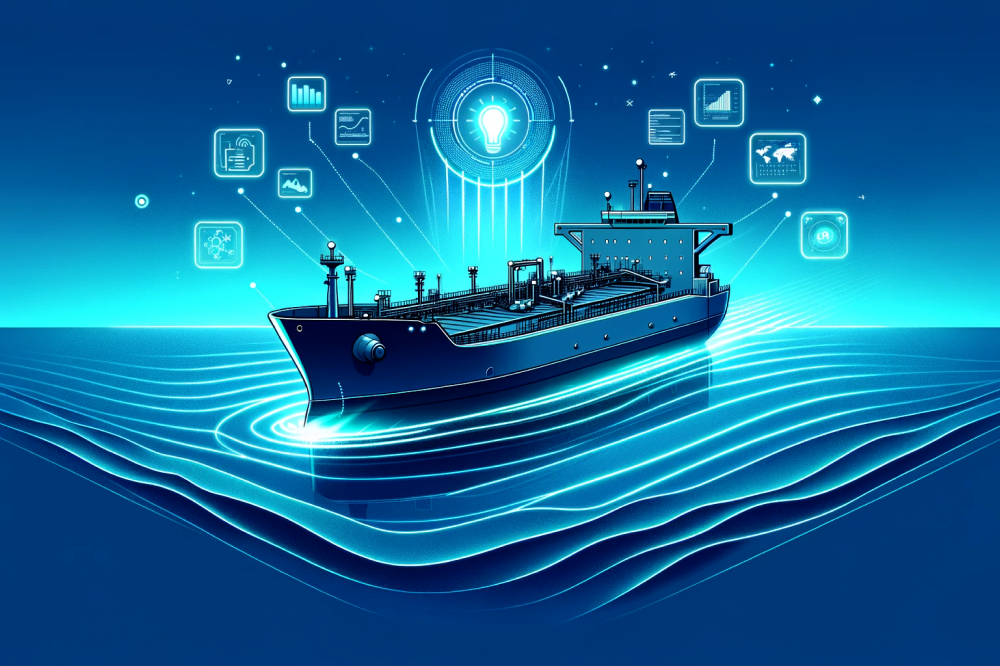
The 5th Breakfast Club meeting: Data, maritime intelligence and cyber security – in peace and war
The 5th and last Breakfast Club in 2022 was just as timely as the four previous ones with regards to topic: Sadly, cyber security has become one of the hottest ones for business and indeed governments these days, even for individuals like you and me.

Cecilie Hellestveit is a lawyer and social scientist with a PhD in international humanitarian law from the University of Oslo. She researches and teaches in the field of international law, use of force, and armed conflicts and is currently attached to the Norwegian Academy of International Law (Folkerettsinstituttet). She gave a whirlwind presentation called “New geopolitical realities and hybrid threats in the maritime domain”, taking us back to 9/11 and how China and Russia reacted to the terrorist attack on the US.
It was a speed lecture on war politics, which also showed how Norway has gone from being in a very central location to a more remote one in recent years, and now with Sweden and Finland joining NATO not anymore so strategically important as we used to be. She also showed how terribly bad it would be for Russia to lose Crimea and thus access to and control of the Black Sea. It was an amazing lesson on history, politics, war, and the superpower balancing between US, China and Russia in the leading roles, with Turkey, India, Yemen and the Middle East in supporting ones. She also talked about expected/potential maritime escalations, and the hybrid measures at sea.

Trond Solberg is a specialist in embedded cryptography, applied to military, public-domain and commercial projects with some 25 years experience in Norwegian security industries. Most recently he built the Cyber Security capacity in DNV before taking on his new role as CEO of Defendable AS on 1 October this year. Trond talked about the “The practical approach to maritime cyber security” and asked what kind of cyber attacks do actually hit the maritime sector currently? The answer to that is ransomware and data theft, some well known examples are Maersk in 2017 and Akva Group in 2021. With respect to future attacks, Trond suggested OT (operational technology) attacks, GPS spoofing, safety system compromise, and vessel control hijacking. The latter is potentially extremely dangerous, but very rare – at least until now.
He advised companies to consider cyber insurance, and told about DNV and Gjensidige who now offer to measure cyber maturity for e.g. insurance purposes. He added that companies should get expert help in this matter, as the direct cost of a cyber attack on average is some 40 mNOK, also there’s the brand damage, the stress of the situation etc. A solid risk assessment of a company’s security can cost as little as 200 kNOK. Findings and advice are directly actionable, and can often effectively prevent incidents. His clear advice is to handle the acute things first. Protect against today’s attacks before being concerned about future attacks. Immediately secure your land-based office and enterprise systems. These are still the absolute main targets for marine cyberattacks. The main attack type is still ransomware, he warned.

The last presentation was by Adam Barnes from AIS data provider Orbcomm and Pål-Robert Engnæs, CTO in and co-founder of Maritime Optima: “AIS – the infrastructure and data: Strengths and weaknesses of the AIS data vs. the opportunities for the commercial shipping industry”.
Orbcomm, Inc. is a global leader and innovator in the industrial Internet of Things (IoT), providing solutions that connect businesses to their assets to deliver increased visibility and operational efficiency. Orbcomm has a global satellite network which provides AIS data service, they are the first satellite AIS provider to achieve worldwide data in minutes with near-persistent global coverage. The next generation AIS (2.0) is called VDES – VHF Data Exchange System, which is required for increased bandwidth and capacity.
Together with AAC Clyde Space and SAAB, Orbcomm has established AOS Partners, developing the next generation of maritime communication services, directed to end customers as well as for safety of navigation services. Their ultimate aim is to create a global maritime communication network enabling ship to ship and ship to shore communication everywhere on the globe; the first global maritime communication system, enabling great improvements for seafarers and their loved ones, the shipping industry as well as our planet.
Last, but not least, Maritime Optima founder and CEO Kristin Omholt-Jensen thanked all those present for being there, and all those who had attended several and some, in fact, all four previous breakfast meetings since the first one on 3 February – when the world looked a lot different than today. She also thanked the Research Council of Norway (Forskningsrådet) and the Norwegian Space Agency (Norsk Romsenter) for their support, as well as Orbcomm, having accepted to become their AIS supplier early on.
She closed by thanking her employees, her board and advisors, without whom the company could not have been where it is today.
And where exactly is Maritime Optima today? Exactly where it is supposed to, moving into new premises in January and ready for growth with the newly launched ShipIntel service.
Today, Maritime Optima offers two products: ShipAtlas has more than 50,000 registered users and sales revenues are growing by an amazing 30% per month. ShipAtlas is the showroom, available for everyone interested in vessel data, tracking, trades, and port activities. ShipIntel is a modularized software for maritime professionals focusing on team efficiency where the customers can customize the software for their needs by selecting the modules they want. ShipIntel was launched in mid-October 2022 and has had an amazing growth since its launch. Many well known shipping companies use ShipIntel daily.
Not bad at all for a company that was established after selling two others and not feeling ready for early retirement – and surviving and indeed growing through the pandemic.















